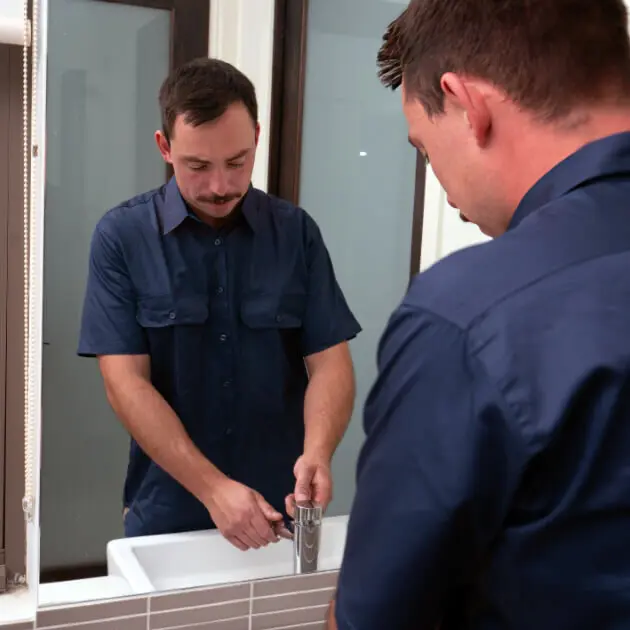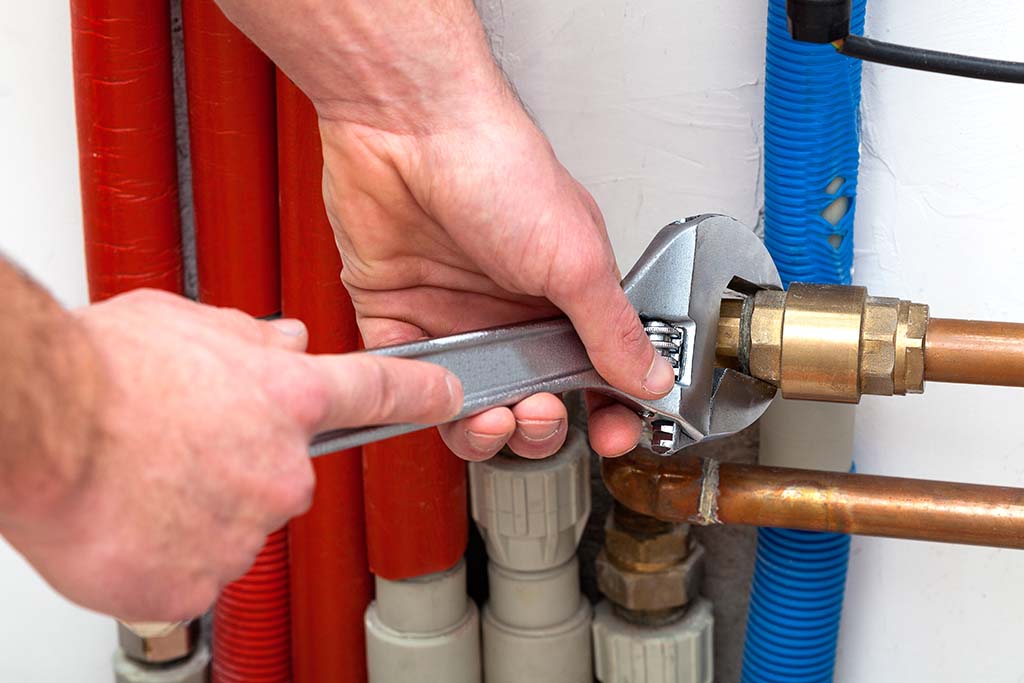Essential Bathroom Plumbing Tips for New Homeowners
Essential Bathroom Plumbing Tips for New Homeowners
Blog Article
What're your concepts about 6 Essential Plumbing Checks for New Homeowners?

For new homeowners, understanding and maintaining restroom plumbing can save both money and time by avoiding expensive problems down the line. Below are some crucial bathroom plumbing suggestions to aid you maintain everything running smoothly.
Familiarize Yourself with the Main Shut-Off Shutoff
Recognizing where the major water shut-off shutoff lies in your house is critical. This permits you to promptly switch off the water supply in case of major leaks or during plumbing emergencies, stopping comprehensive water damage.
Frequently Examine for Leakages
Little leaks can result in huge issues. On a regular basis examine under sinks, around commodes, and near pipes components for any signs of leakages. Search for moisture, little drips, or corrosion. Capturing and repairing leaks early can stop a lot more major damage and conserve water.
Don't Neglect Slow Drains Pipes
If your sink or bathtub is draining pipes gradually, it's typically a sign of an obstruction forming. Addressing this early can protect against a full obstruction. Use a plunger or a plumbing technician's snake to remove particles. Avoid making use of chemical drainpipe cleaners as they can harm your pipes gradually.
Know What Not to Flush
Commodes are not waste disposal unit. Avoid purging anything besides toilet paper and human waste. Things like wipes, feminine health products, and cotton bud ought to be dealt with in the garbage to stop blockages and sewage system backups.
Mount Strainers in Drains
Location filters in your sink and tub drains to capture hair and various other debris prior to they enter your plumbing system. Cleansing the strainers on a regular basis will aid avoid build-up and keep water streaming freely.
Preserve Your Hot Water Heater
Guarantee your water heater is set to an ideal temperature (usually around 120 levels Fahrenheit) to stop hot and reduce energy use. Flush the tank every year to eliminate debris buildup, which can minimize the performance and lifespan of your heating unit.
Update Your Fixtures
If your home has older components, take into consideration upgrading to much more reliable versions. Modern toilets, showerheads, and faucets are created to make use of less water while offering great stress, which can significantly decrease your water bill and environmental footprint.
Beware with Do It Yourself Pipes Services
While it's alluring to handle all home repairs on your own, be cautious with plumbing. Some issues might require professional expertise, especially if they involve main water lines or sewer repairs. Hiring a professional can often be extra cost-efficient than do it yourself, specifically if it protects against more damages.
Get Ready For Winter
Shield your pipelines from cold throughout cold weather by insulating pipes in unheated locations like cellars, attics, and garages. During extreme cold, let cold water drip from taps offered by subjected pipelines to aid prevent freezing.
Arrange Routine Upkeep
Take into consideration scheduling annual inspections with a licensed plumbing. They can spot issues that you could miss out on, such as surprise leaks or damage on pipelines and components. Routine maintenance helps expand the life of your pipes system and can stop emergencies.
Conclusion
Recognizing and keeping your home's restroom plumbing can protect against several typical problems. By following these essential suggestions, you can ensure your bathroom continues to be practical and efficient, conserving you money and time over time.
5 Plumbing Tips for First-Time Homeowners
Know How to Shut Off the Water
In most homes, the water can be shut off at two places: at the appliance or fixture itself, and for the whole house. For instance, look under your sink or behind the toilet. See those little knobs that connect with the pipes? Those are the shut off valves for those fixtures. Simply turn them until the water is off. The main shut off valve (which controls water throughout your entire home) will be outside, where the water feeds into the structure. You might need a dedicated tool, such as a water shut-off key, to shut off the water at the main.
Build an Emergency Plumbing Kit
Everyone knows how important it is to have a high-quality plunger around the house. But there are other things that can help you out when issues arise with the pipes. Building an emergency plumbing kit to solve issues on your own is part of any list of basic plumbing tips. Consider adding these things to create a basic plumbing kit:
Adjustable wrench Tongue-and-groove pliers Screwdrivers Plumber’s tape Pipe sealant Duct tape Set of hex keys Clip light for working under cabinets Auger and hand snake Do a Little Research
Many small leaks can be handled by replacing a small part of the piping system, tightening part of a faucet, or even changing out an aerator. Take the time to browse how-to articles for common plumbing problems, such as a running toilet or slow-draining sink. You might be surprised to find how easy it can be to do simple things yourself, like replace a valve in the back of the toilet.
Keep it Simple With No Chemicals
If you have a clog, you might be tempted by the promises of liquid drain cleaner. While this might work at first, it actually causes more damage deep in the pipes, eventually creating even more problems down the road.
Instead, try using baking soda and vinegar to create a strong fizzing effect that can help break up clogs and clear gunk from drains. Follow it with boiling water to clean the pipes even more thoroughly.
Take Care of Your Garbage Disposal
Be cautious about what you put down the disposal. Avoid pouring in fats, oils, and grease, as these are a surefire way to get a clog. Beware of certain foods too, such as celery or bones, as they can lodge in the works. Always run the disposal with water flowing.
https://modernize.com/homeowner-resources/other/10-plumbing-tips-for-first-time-homeowners

Call Today Report this page